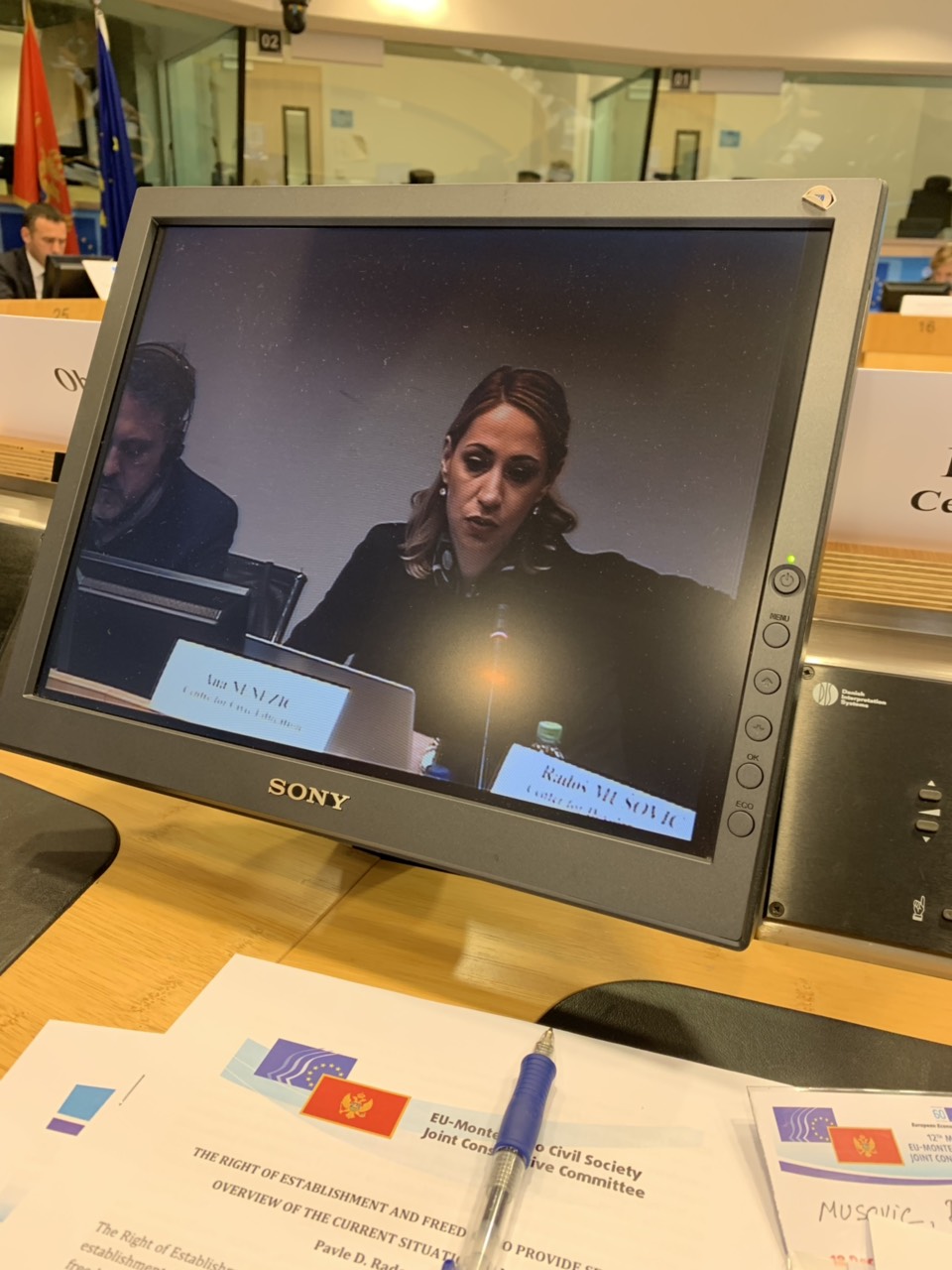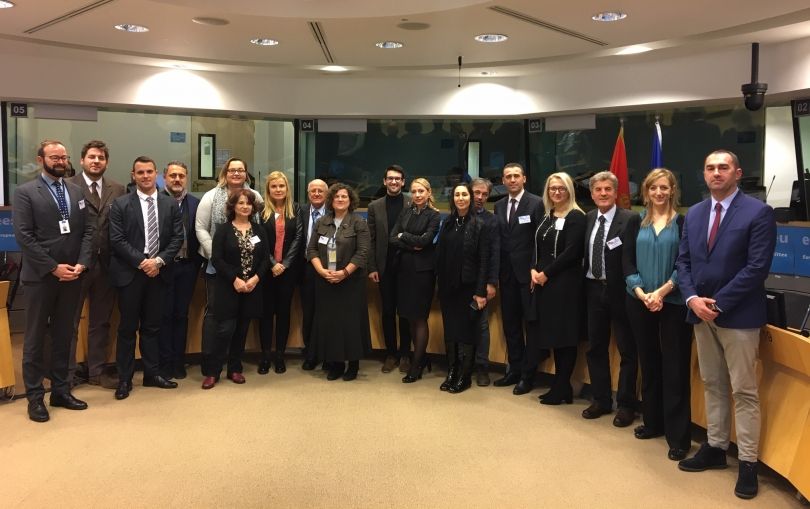Ana Nenezic, Programme Coordinator in the Centre for Civic Education (CCE) has participated at the meeting of the EU-Montenegro Civil Society Joint Consultative Committee(JCC) held on 18 December in Brussels. Nenezic, a full member of the JCC, as rapporteur has presented a report on state of affairs in the area of civil society and media in Montenegro, as well as proposal of conclusions for joint JCC Declaration for this area.
Reflecting on the importance of civil society in the overall Montenegrin accession process to the EU, Nenezic reminded that it was expected, after more than six years of negotiations with the European Union, ‘that we can note developed partnership between Government and civil society and substantial cooperation, with favourable environment for work of NGO. However, something entirely different happened, and we note regression when it comes to cooperation of Government and civil society’. Nenezic pointed the numerous examples of pressures exerted on civil society and campaigns which primarily were directed to discreditation of work of critically oriented non-governmental organisations. In this context, she highlighted also the cases of dismissals of representatives of civil society from the Council of RTCG, Council of Anti-Corruption Agency, as well as campaign directed towards leaders of four NGOs due to expressed opinion on lack of track record of Government after six years of negotiations with the EU, which are conducted by the same matrix, and has requested an adequate reaction and support both from JCC and the other bodies of European Union.
Also, Nenezic raised the issue of the participation of non-governmental sector in working groups and other bodies of Government of Montenegro, assessing that this mechanism is not substantially sufficiently open thus the quality suffers, as well as transparency and legitimacy of negotiation process. ‘Comments and suggestions of NGOs are a priori considered to be attack, and not constructive criticism, access to key documents which are precondition for us to give the best contribution and conduct in-depth monitoring of negotiation and reform process is also impeded to us‘, said Nenezic during meeting.
In the area of media, Nenezic reminded of numerous open challenges which journalists and media are facing with in Montenegro. She introduced JCC with media laws that are being prepared, but also reminded that ‘without proper implementation, even the best legal solutions remain only a letter on a paper. Hence, it is important to carefully monitor also the preparation of these drafts to the end in order to incorporate the best European practices, and the application of adopted solutions‘. Nenezic highlighted also the lack of results in discovering perpetrators and masterminds in the case of attackon journalist of ‘Vijesti’ Olivera Lakic, as well as numerous earlier cases which remain unresolved and with no progress in processing. She invited JCC to support efforts of work of Commission for investigation of attacks on journalists and to urge the authorities to enable the access to all necessary documents to them. Finally, Nenezic pointed the continuity of non-transparent allocation of financial resources form public funds for media, by which the media market is significantly being affected as well as the editorial policy of media and the necessity to legally regulate this issue.
Upon the completed meeting, a joint Declaration was adopted, available on the link: https://www.eesc.europa.eu/en/agenda/our-events/events/12th-meeting-eu-montenegro-civil-society-joint-consultative-committee/documents, which will be forwarded to the EU-Montenegro Stabilisation and Association Council, the EU-Montenegro Stabilisation and Association Parliamentary Committee, the European External Action Service, the European Commission, and the Government of Montenegro. Declaration has included interventions of colleague Nenezic.
Milos Knezevic, PR/Programme Associate


